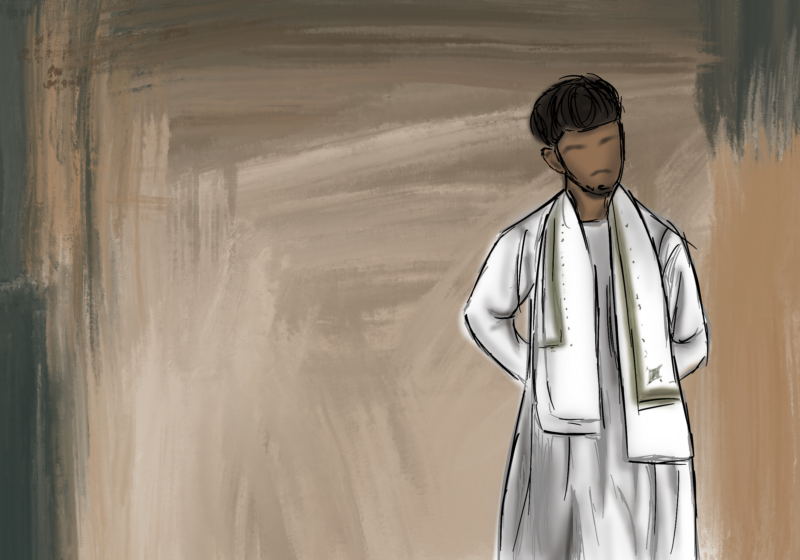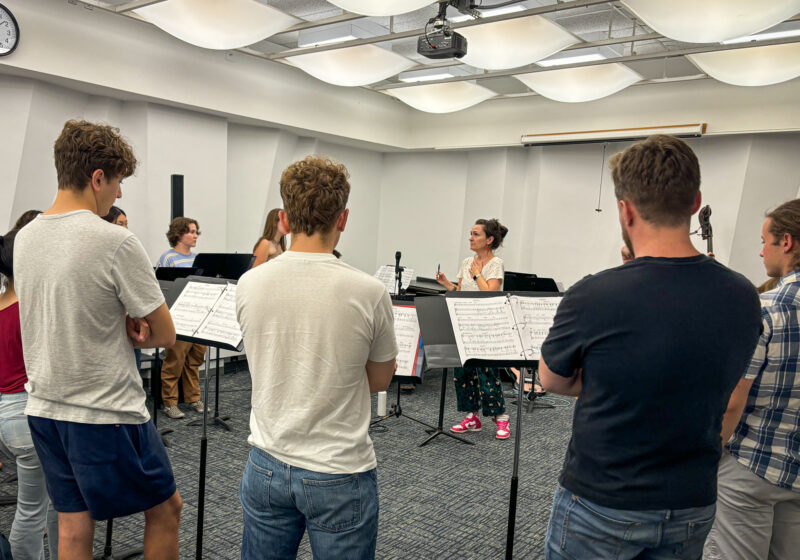I was introduced to politics in late 2015 and early 2016, during the peak of the presidential primaries. This period of time, in hindsight, had a high number of terror attacks by ISIS and other Islamic extremists.
There was San Bernadino, Charlie Hebdo and the Bataclan in Paris, and the Pulse nightclub in Orlando, among others. This made people more scared of terrorists. Unfortunately, it also made them more scared of all Muslims. Trump responded by calling for a “total and complete shutdown of Muslims until we can figure out what the hell is going on”.
By chance, a lot of my closest friends were Muslims, whose families mostly came from Pakistan, India, and Egypt. Whenever terrorism came up in class, they would vehemently deny that their religion had anything to do with the brutality of ISIS. If anything, they hated ISIS more than most Americans, since they were being scapegoated because of it. And yet, since they shared the same faith, Trump wanted to totally ban them from the country.
Back then, because I saw Republicans demonizing Mexicans as criminals and Muslims as terrorists, and because I saw the political left talking about treating people as individuals, I thought that liberals really cared about not generalizing people based on their race. To my dismay, in the years since, I’ve found that neither side really believes that deep down, and only cares about treating their own kind as individuals.
Not long ago, a girl in Iowa, Mollie Tibbets, was murdered by an illegal immigrant, Cristhian Rivera. In response, Trump said that Tibbets was “permanently separated” from her family, a reference to his own family separation policy for refugees. This was as if to say immigrant families being separated isn’t bad because immigrants murdered Americans.
Senator Tom Cotton said that “Mollie would be alive if our government had taken immigration enforcement seriously years ago”. This statement is revealing, because the suspect in the case had no previous criminal record.
In other words, the only way to stop a future murder with the same circumstances as Tibbet’s would be by deporting all illegal immigrants, regardless of whether they’ve done anything harmful to other people.
This would mean collectively punishing millions of people by kicking them out of the country for the actions of one murderer. Immigrants who have probably never heard of Mollie Tibbets, and who are no more likely to be criminal than citizens. Just like with banning Muslims, the left wing is against this, and talks about how you should judge people as individuals, and not by what people that look like them do.
The same phenomenon is happening in South Africa, but in reverse. Because of apartheid, most land is held by whites, who are in general much richer than blacks. For decades, the government has tried to change this by buying land from willing sellers at the market rate and giving it to blacks.
More recently, though, the government passed a law allowing it to expropriate land from whites without compensation.
It was driven to do this by Julius Malema’s Economic Freedom Fighters (EFF), a group that’s an ideological mix of communism and black nationalism. Malema makes blanket characterizations of whites like “we have not called for the killing of white people … at least for now” and “we are cutting the throat of whiteness”.
“For now”, he’s only calling for the expropriation of white-owned farms, but Malema doesn’t even couch his racial hatred by talking about crime like Trump does. He simply hates whites because of apartheid, and he thinks they should be dispossessed because of it. Nevermind that apartheid ended 30 years ago. Never mind that many of the whites who believed in it are already dead.
By the time apartheid ended in 1990, plots of land might’ve changed hands dozens of times between willing buyers and sellers, the original criminals and rightful owners long lost to history. Today, most of the people owning the farms probably had nothing to do with apartheid themselves; maybe their parents, or grandparents, or the people they bought the land from did.
But whether the owners are despicable racists who believed in apartheid or among the few whites who opposed it is apparently immaterial — they are white, and therefore must be kicked off their land. They are being judged and punished for the actions of people they had no control over, much the same as Mexicans and Muslims in the U.S.
The left in America is less identitarian than the EFF, but still operates on many of the same principles. That was apparent in the left’s response to Trump’s half-true tweet on South Africa. Virtually every left-leaning media outlet called Trump a racist for tweeting about “farm killings” but almost none said that it was bad to take people’s land because of their skin color. Even with the context of Malema, one of the chief architects of expropriation, making blatantly racist statements.
If Trump had said “we have not called for the killing of Muslims … for now” in the context of something like the Muslim travel ban, he would rightly be called a racist, and his words would be front and center. The left rightly cares about and is against collective punishment based on race when the punishment is to ban Muslims or deport Mexican immigrants. The right does the same when the punishment is to dispose white farmers of their land.
Neither side has any principle of equality animating it, and both are largely driven by racial and cultural grievances. Deporting Mexican immigrants and building a wall wouldn’t give white republicans any more jobs — immigrants mostly do the low-paying, backbreaking, agricultural jobs that American citizens avoid like the plague.
Seizing all white-owned land in South Africa would at most affect 3 percent of the economy and even less of the wealth distribution.
In both cases, however, the racial majority would feel that they have more control over their country.





